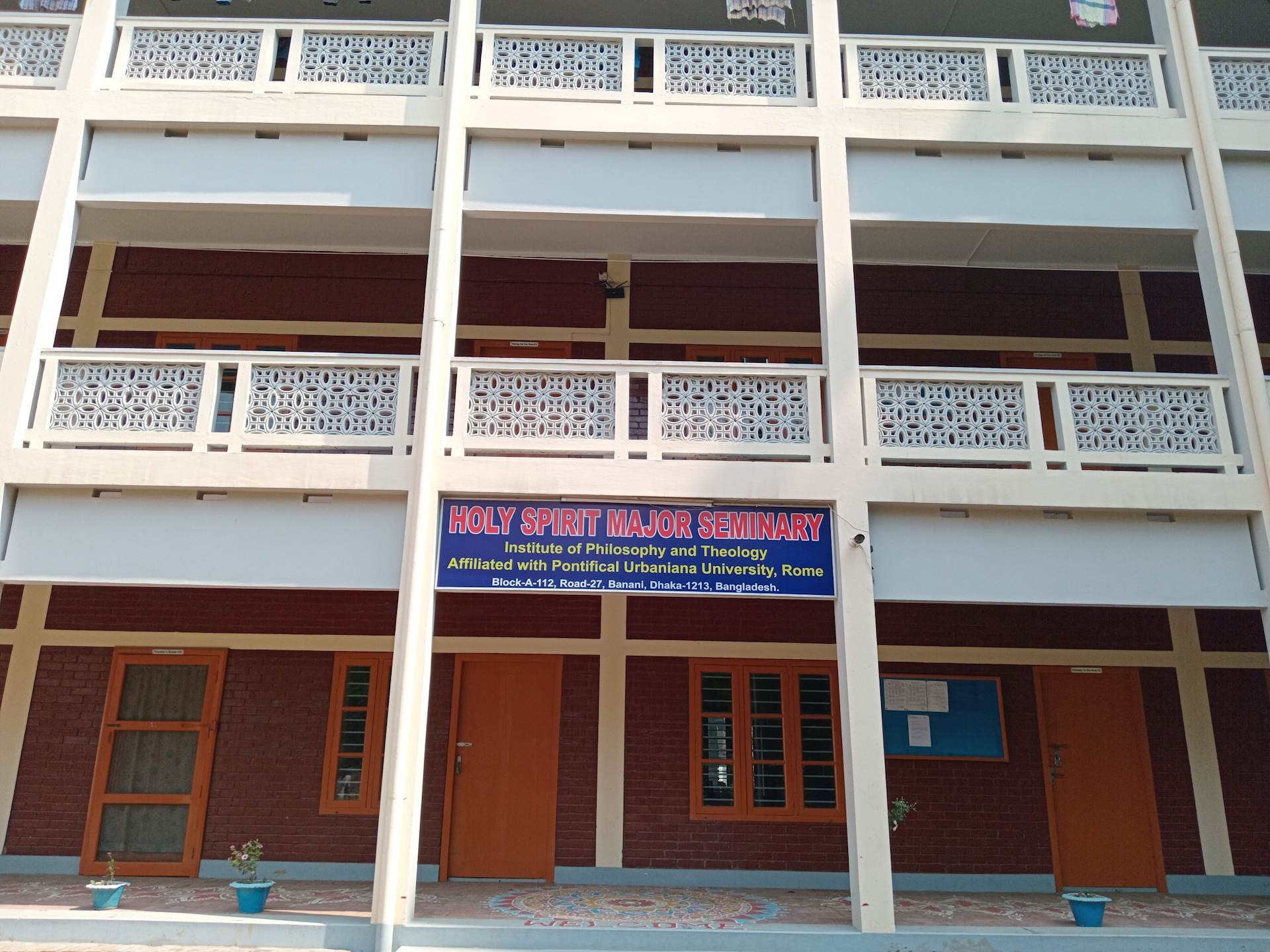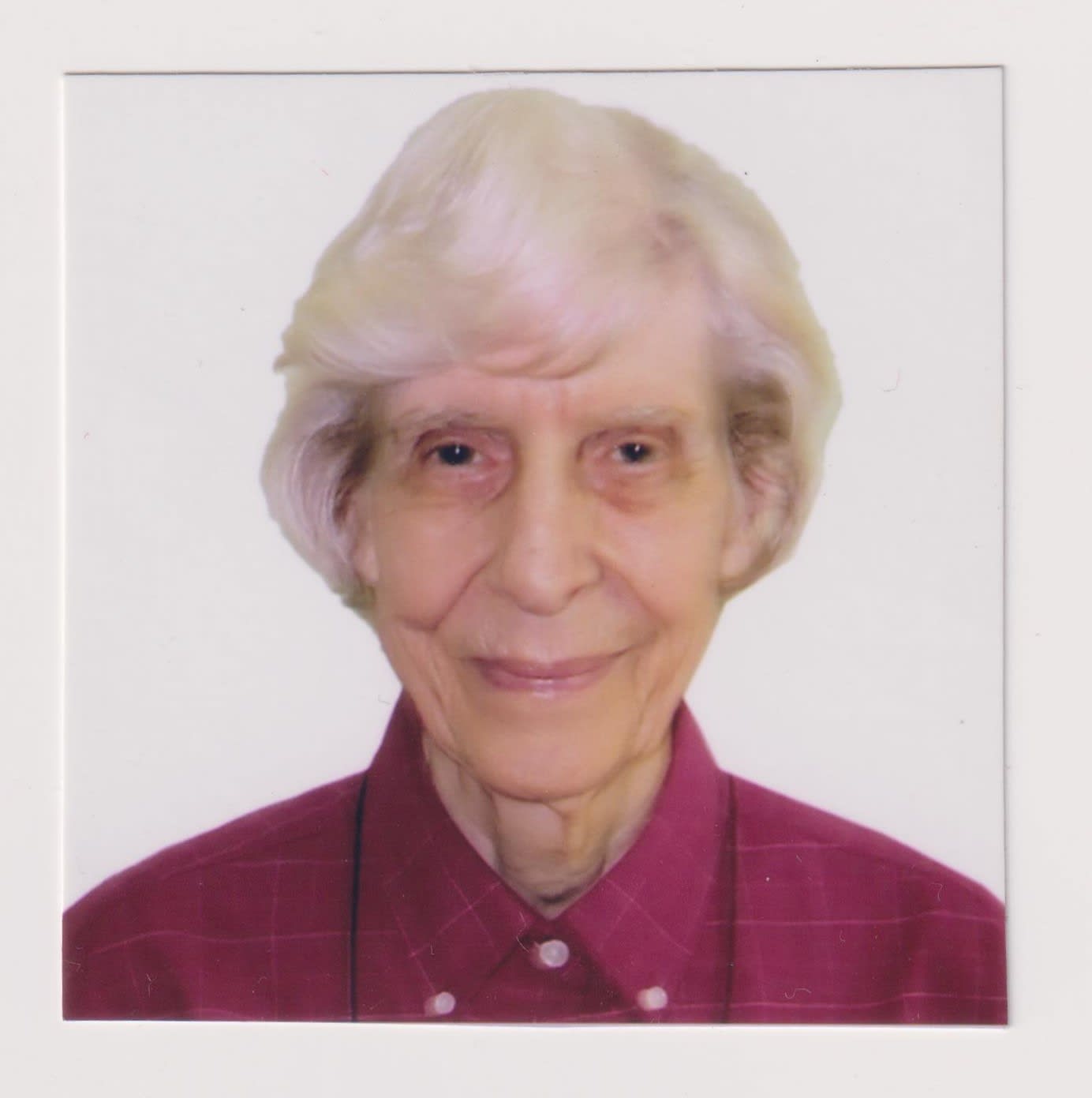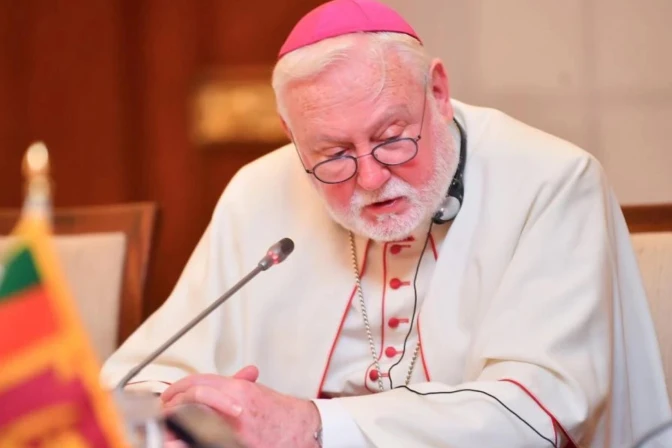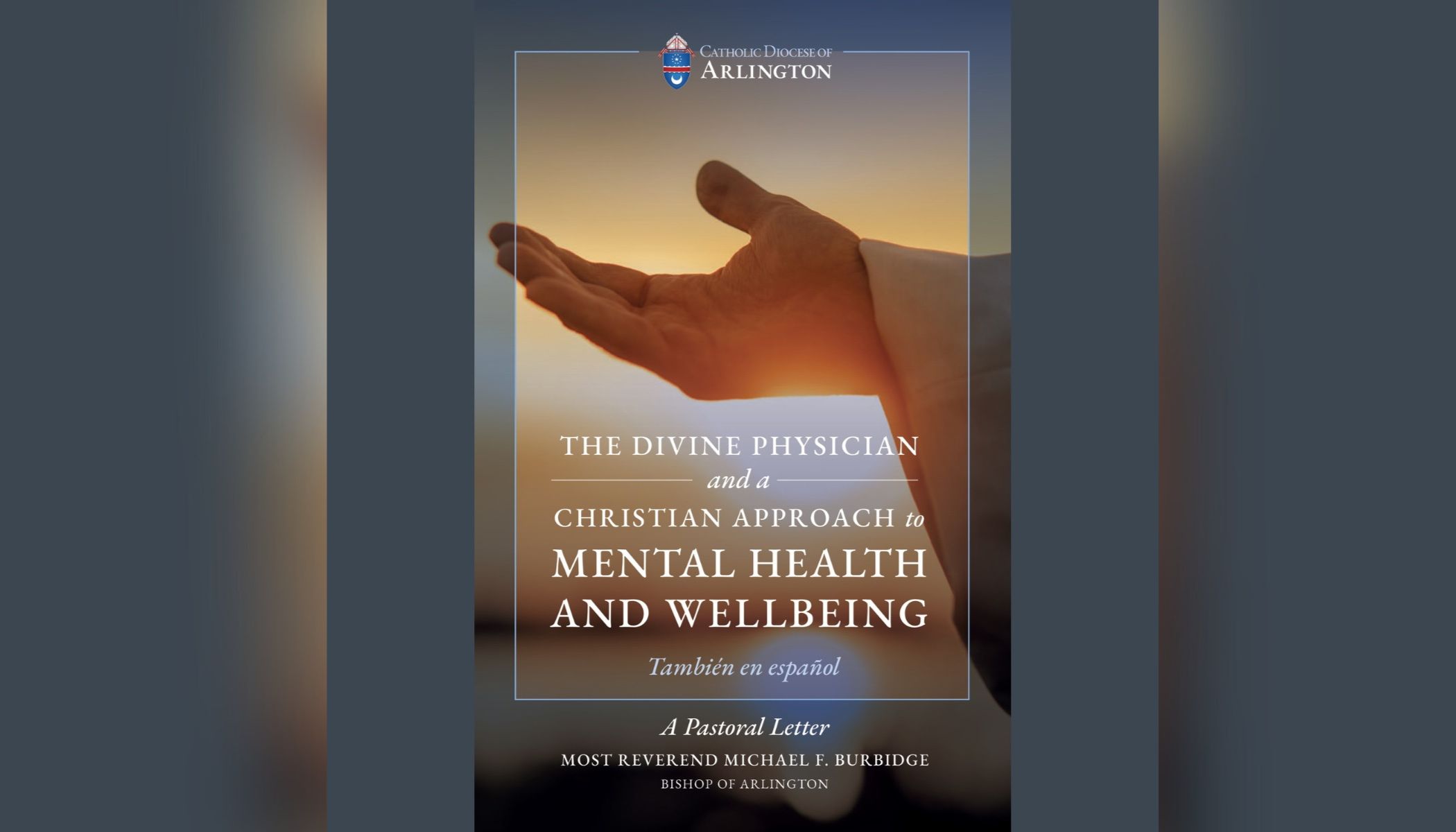Representatives from the U.S. and African bishops' conferences convened in Washington, D.C., during a congressional hearing on Capitol Hill this week in a display of solidarity as religious freedom in Nigeria continues to come into sharper focus.
Bishop Stephen Dami Mamza of the Yola Diocese in northeast Nigeria concelebrated a Mass on Feb. 4 for solidarity between the bishops and faithful of the Catholic Church in the U.S. and Africa alongside Bishop A. Elias Zaidan, chairman of the USCCB Committee on International Justice and Peace, and Bishop David Malloy of Rockford, Illinois, who was the main celebrant.
"The Church in the United States and the Church in Africa are not two separate entities. They are two lungs of the same body, breathing the same spirit," Mamza said during his homily at the Mass, which took place at the Basilica of the National Shrine of the Immaculate Conception in Washington, D.C. "When African bishops speak courageously about war, poverty, corruption, or threats to human dignity, their voices echo in American dioceses. When American bishops defend the sanctity of life, advocate for migrants, or confront the culture of individualism, their witness strengthens the Church in Nigeria, Ghana, Kenya, Congo, and beyond."
Mamza, who is the first vice president of the Symposium of Episcopal Conferences of Africa and Madagascar (SECAM) representing the English-speaking countries, told EWTN News English that he has been in Washington this week to mark the release of a joint Feb. 2 statement between SECAM and the U.S. Conference of Catholic Bishops (USCCB) offering guidance on how to strengthen solidarity among bishops and faithful of Africa and the U.S.
"The reason for this statement, in the first place, is not political, it is not economical," he said in the interview. "This statement is as people of the same faith, the same baptism, the same Church as Catholics."
"We know we have a lot of problems in Africa," he acknowledged, "and we need the support of the U.S. as a Church … It is a broad collaboration that we hope to have that will continue with the USCCB."
Zaidan also weighed in on the necessity of celebrating a Mass in solidarity with Africa, noting that while "the human side is important in the relationship" between the U.S. and Africa, "since we are a Church, God is God, and he deserves our best first."
The Mass, he said, "is a sign of unity" with the Church around the world, because in the Mass, "God brings us together."
"Asking for divine providence to the intercession of the Blessed Mary of the Immaculate Conception, patroness of the United States, we wanted to place our faith, hope, and pledge our love also to the Mass as well," Zaidan added. "This is the reason [for] the solidarity Mass."
Reflecting on the day's reading from the Gospel of Mark, Mamza noted during his homily how Jesus "was amazed" at the "lack of faith" (Mk 6:6) from the people of Nazareth, his hometown. "Today, we proclaim this Gospel in a very particular context: a solidarity Mass uniting the bishops of Africa and the bishops of the United States of America," he said, describing the Gospel episode as "a mirror held up to the Church today."
Five bishops — including Zaidan, Mamza, Malloy, Washington Auxiliary Bishop Evelio Menjivar-Ayala, and Bishop Jerome Feudjio of the Virgin Islands — were present at the Mass, as well as nine priests.
Mamza warned that often "we can become accustomed to our own ways of worship, governance, theology, and pastoral practice that we fail to recognize the Spirit speaking through voices that sound different from our own."
The Catholic Churches in the U.S. and in Africa "come from different histories, cultures, and ecclesial experiences," he said, emphasizing Africa's vibrance and communal resilience in the face of poverty and persecution, and the U.S. Church's offerings in theological scholarship, institutional resources, and "long experience engaging pluralistic societies."
Yet, he said, "we are, in truth, co-workers in the vineyard of the Lord." Solidarity between the Church in the U.S. and Africa are not grounded in economics or politics, the bishop emphasized, but in faith.
"At the foot of the cross stood people from different places, different experiences, and different wounds — but under the cross, they became one. So too, under the cross, the bishops of the United States and Africa are called to stand together," he said, concluding: "Solidarity between the Catholic bishops of the United States and African bishops deepens faith, mission, justice, and unity within the Church. It strengthens both regions by promoting mutual respect, shared responsibility, and a common commitment to serving humanity in the light of the Gospel."
The Mass for solidarity came amid the International Religious Freedom Summit in Washington, D.C., and the subsequent annual Capitol Hill Advocacy Day, which included a congressional hearing on religious freedom around the world that focused heavily on Nigeria.
The Feb. 4 Committee on Foreign Affairs hearing chaired by Rep. Chris Smith, R-New Jersey, included testimony from former Ambassador at Large for International Religious Freedom Sam Brownback, who described Nigeria as "the deadliest place to be a Christian." Brownback warned against the Nigerian government seeking help from countries like China, which he said has utilized "billions of dollars to suppress people of faith" and has freely shared its resources for oppression with other dictatorships.
Discussing U.S. policy on Nigeria under the Trump administration, Brownback emphasized the need for the reinstatement of foreign aid and called recent strikes on Nigeria "a mistake," saying the funds used to carry out the strike most likely exceeded the amount of aid that was previously distributed to interreligious aid organizations.
The former ambassador further stressed the need for country of particular concern (CPC) designations to come with more "bite," such as targeted sanctions, in order to be taken seriously by countries found guilty of religious freedom violations.
Smith expressed thanks to the Trump administration for redesignating Nigeria as a CPC but also stress that "we cannot take our eye off the ball."
"Christians in the Middle Belt are still being massacred," he said, noting "a culture of denial by Nigerian officials persists."
"More than ever before, vigorous U.S. leadership and diplomacy are needed to address religious freedom violations globally and end persecution of Christians and all other vulnerable religious groups," Smith said.





